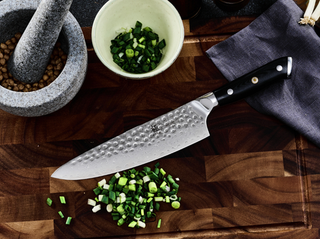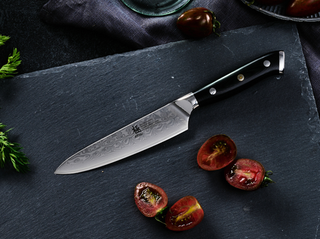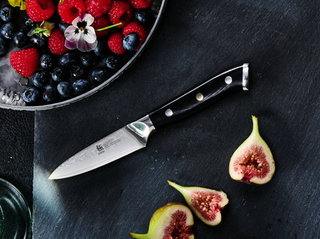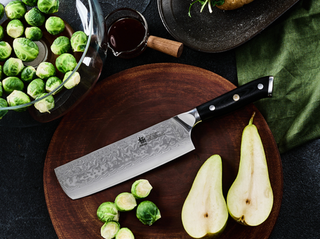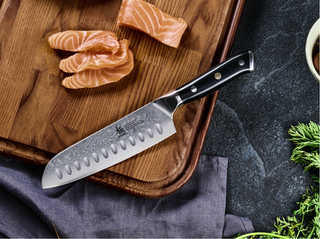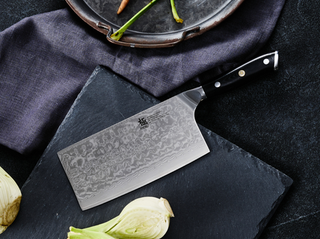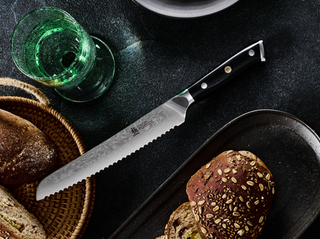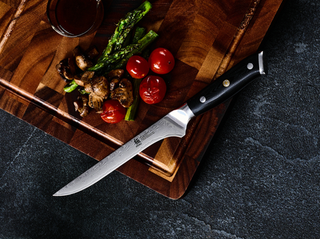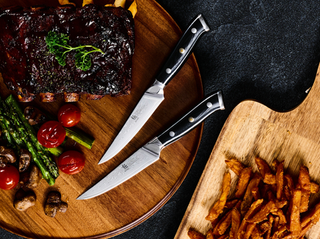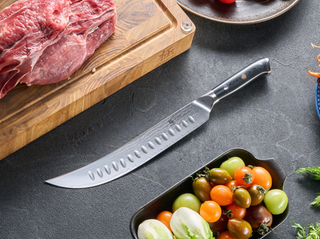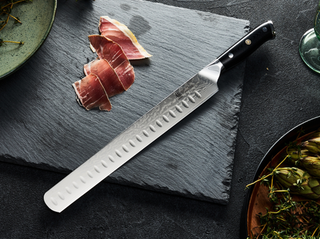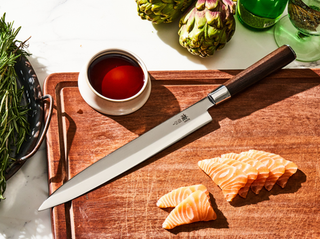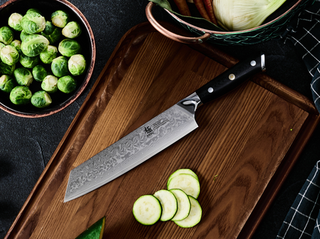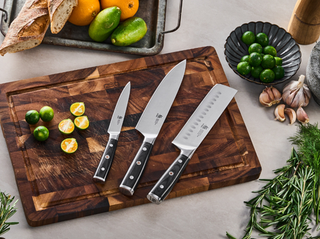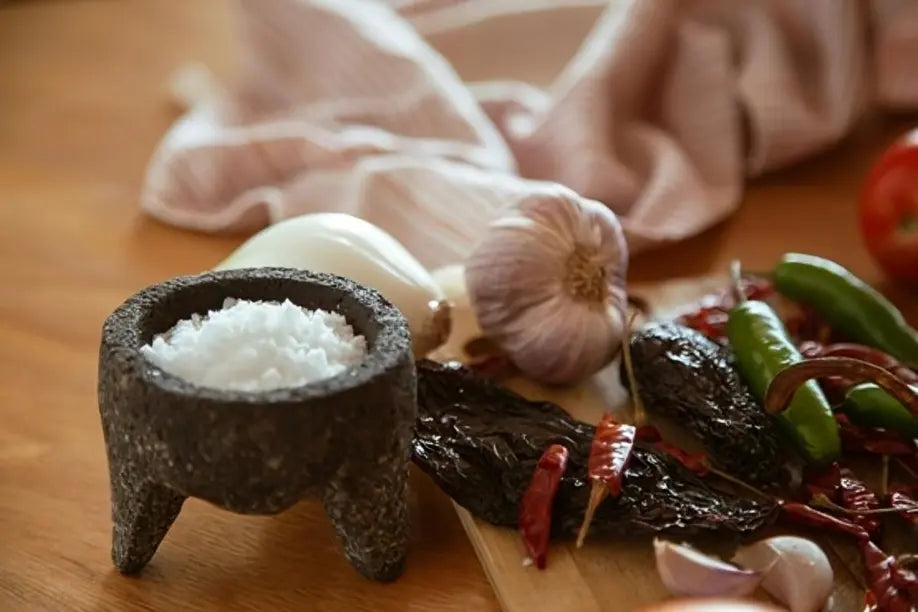Have you ever noticed how Japanese ramen shops get their garlic so perfectly minced that it practically melts into the broth? While many home cooks reach for pre-minced garlic to save time, fresh garlic prepped the right way makes a huge difference in your cooking. We'll show you how to cut garlic like a pro, for a quick stir-fry or slow-simmered ramen - without the sticky fingers and uneven pieces that often frustrate home cooks.
1. What is a Clove of Garlic?
Think of a garlic head like an orange - the whole bulb breaks into individual segments (cloves), each wrapped in papery skin. A typical head contains 10-12 cloves, though some varieties may have up to 20. When a recipe calls for "one clove," they mean one of these individual segments, not the entire head.
Converting Minced Garlic to Cloves
Here's a quick reference guide:
- 1 medium clove = about 1 teaspoon minced garlic
- 3-4 medium cloves = 1 tablespoon minced garlic
- 1 whole garlic head = about 3-4 tablespoons minced garlic
2. How to Cut Garlic: Step-by-Step Guide
Basic Slicing
1. Remove one clove from the head2. Place clove on cutting board and lay your knife flat on top

3. Press firmly with your palm to crush - the skin will slip right off
4. Slice lengthwise for longer pieces, or crosswise for rounds
5. For ramen-style slices, cut at a 15-degree angle for maximum surface area
6. For stir-fries, slice paper-thin (almost see-through) to achieve that melt-in-your-mouth texture

How to Mince Garlic Like a Ramen Chef
1. Start with sliced garlic

3. Gather garlic back into a pile and continue mincing
4. Here's the pro trick: Add a tiny drop of oil to your knife blade - it prevents sticking and helps create a garlic paste
5. Keep working the paste until it's almost cream-like - this is how you get that rich garlic flavor that completely infuses into broths and sauces
3. Best Japanese Knives for Garlic Prep

A 7 inch Nakiri or Santoku knife works perfectly for garlic because their thin blades prevent sticking, sharp edges make clean cuts without crushing, and wide blades help scoop cut pieces. Here's what we recommend:
KYOKU Shogun Series Nakiri Knife - The straight blade edge and ultra-thin profile excel at precise cuts. Perfect for paper-thin garlic slices that melt into your stir-fries.
KYOKU Gin Series Santoku Knife - This all-rounder combines a gently curved blade with a hollow edge to prevent garlic from sticking. Ideal for both fine mincing and chopping.
KYOKU Daimyo Series 7" Santoku Knife- The extra-wide blade gives you more control for the rocking motion needed in mincing garlic. The Damascus steel holds its edge longer for consistently clean cuts.
4. Common Garlic Cutting Problems
- Uneven Pieces: Start with uniform slices before mincing
- Sprouted Garlic: Split lengthwise, remove green sprout, then use as normal
- Old/Tough Garlic: Soak cloves in warm water for 10 minutes before cutting
5. Professional Garlic Cutting Secrets from Ramen Shops
Ever noticed how ramen shop garlic tastes different from home-cooked versions? Rich garlic flavors are what make restaurant dishes stand out. Start your day like a ramen chef:
1. Morning Prep Method
- Cut garlic when it's cold (straight from fridge)
- Let minced garlic rest 1-2 hours before cooking
- Keep cut garlic in oil, not water
2. Temperature Control
- Cold garlic = cleaner cuts
- Room temperature = better for creating garlic paste
- Never prep near hot stove (causes bitter flavor)
Ideal Cooking Time for Different Garlic Cuts
|
Cut Type |
Cooking Time |
Best For |
Tips |
|
Paper-thin Slices |
30 seconds |
Oil infusions, Garnishes |
Should be nearly transparent; browns quickly |
|
Regular Slices (⅛ inch) |
1-2 minutes |
Stir-fries, Sautés |
Cut uniformly for even cooking |
|
Rough Chop |
2-3 minutes |
Sauces, Marinades |
Size of a rice grain works best |
|
Whole Crushed Cloves |
30+ minutes |
Stocks, Broths, Slow-cooking |
Remove before serving for subtle flavor |
|
Minced/Paste |
45-60 seconds |
Ramen, Dressings |
Cook on low heat to prevent burning |
5. Common Japanese Dishes Using Different Garlic Cuts
Ramen (特に二郎系/Jiro-style):

Super-fine minced garlic practically dissolves into the rich broth, creating that intense garlic punch famous in Japanese ramen shops. The smaller you mince, the more flavor infuses into your soup.
Yakitori (焼き鳥):
Thin diagonal garlic slices are threaded between chicken pieces before grilling. As they char, they become sweet and crispy, adding both texture and smoky garlic flavor to the skewered meat.

Japanese Garlic Fried Rice (ガーリックチャーハン):
Roughly chopped garlic distributes evenly throughout the rice, ensuring every spoonful has the perfect amount of garlic flavor without overwhelming any single bite. Some pieces get crispy while cooking, adding delicious texture.
Garlic Miso Soup:
Whole crushed garlic cloves are gently simmered in the broth, then removed before serving. This technique imparts a subtle garlic essence that complements rather than overpowers the delicate miso flavor.
Ninja Tofu (ニンニク豆腐):

Paper-thin garlic slices are flash-fried until golden and sprinkled over hot tofu. The crispy garlic adds both texture and intense flavor to this simple dish.
6. Frequently Asked Questions
How do you mince garlic without a garlic press?
Use the knife cutting technique for garlic mentioned above - it's actually faster once you get the hang of it. Plus, knife-minced garlic releases more flavor oils than pressed garlic.
Why does my garlic stick to the knife?
This usually happens with dull knives or when cutting too slowly. A sharp Japanese knife and quick, confident cuts prevent sticking. The oil trick mentioned above also helps.
Should I buy pre-minced garlic to save time?
Fresh garlic has significantly more flavor than pre-minced. Once you master these garlic cutting techniques, you can mince a few cloves in about the same time it takes to open and measure pre-minced garlic.
How do I get garlic smell off my hands?
Wash your hands thoroughly with soap and warm water. For stubborn garlic odors, try rubbing your hands with lemon juice or a mixture of baking soda and water - both help break down the odor-causing compounds. Some cooks also find that washing hands with cold water works better than warm. If you frequently work with garlic, consider wearing disposable gloves during prep.

While pre-minced garlic might save a few minutes, the rich flavor and perfect texture you get from freshly cut garlic makes it worth the extra effort.
Start with one clove, practice these cutting methods, and you'll be handling garlic like a pro in no time. For the best results, invest in a quality Japanese knife that makes precise cuts easier and more enjoyable.
